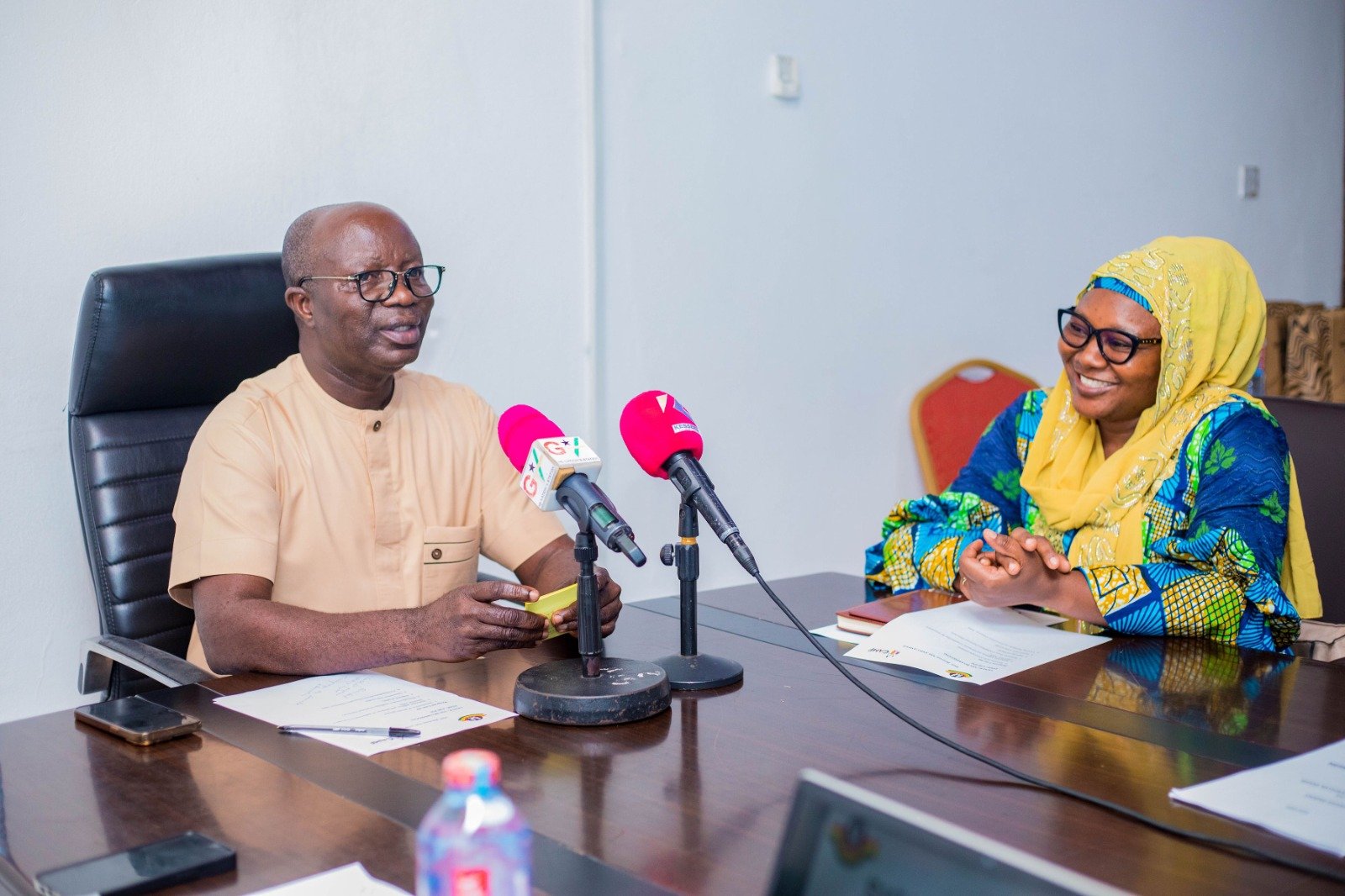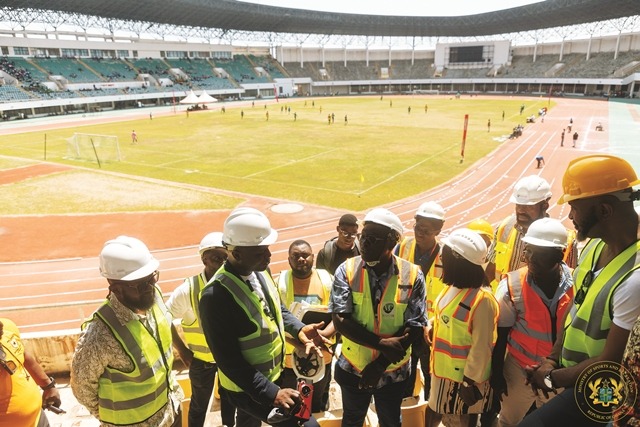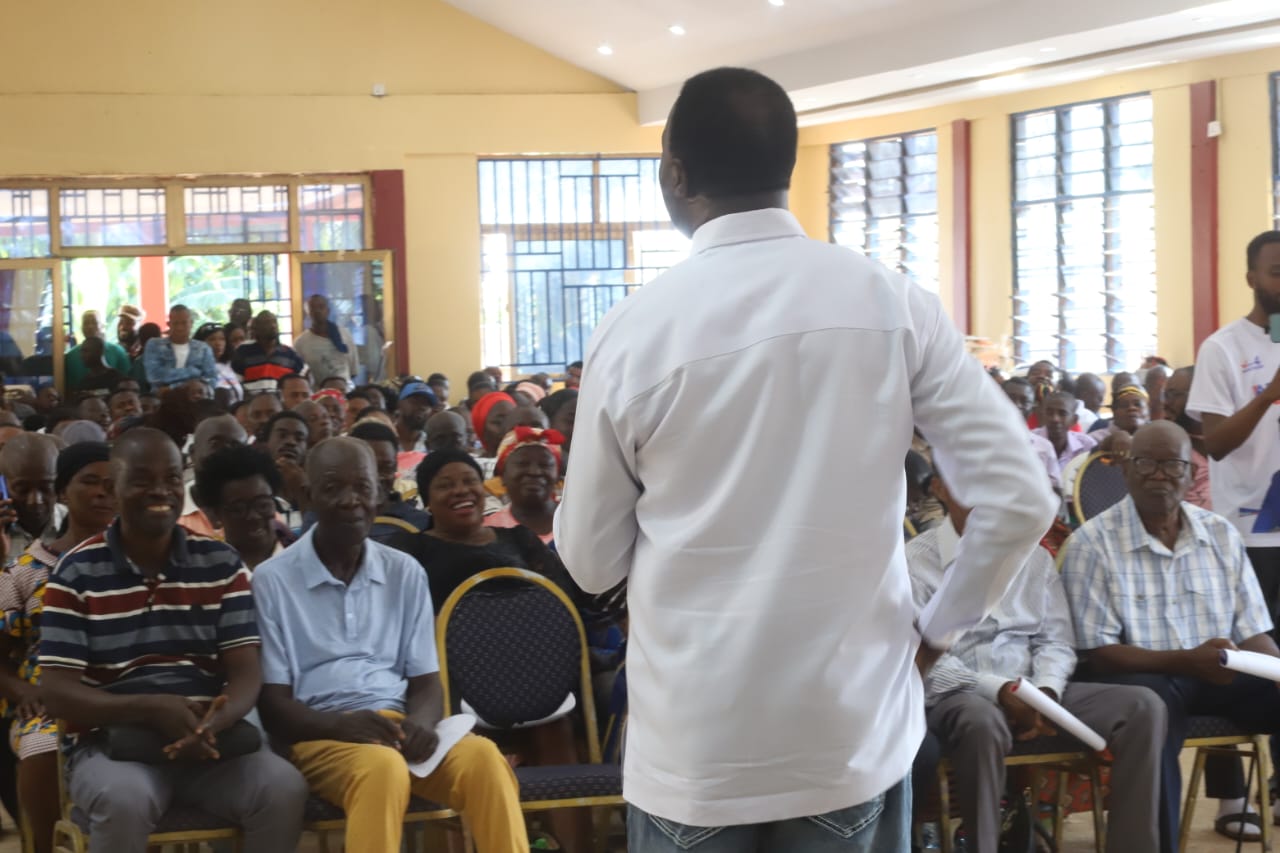
By Seth KRAMPAH, Ho
The Second Deputy Governor of the Bank of Ghana Mrs Matilda Asante Asiedu has called on Rural and Community Banks (RCBs) to place women at the centre of their strategies, stressing that empowering women is not only fair but also smart business.
The call comes at a time when Ghana is intensifying efforts to build resilience in its financial sector and promote sustainable development.
By urging RCBs to prioritise women-focused initiatives, the Bank of Ghana is underscoring the need for policies and practices that recognise the transformative potential of women entrepreneurs and workers. This initiative is expected to foster stronger community economies, reduce poverty, and align with national goals of achieving equitable growth across all regions.
Delivering the keynote address at the 2nd ARB Women’s Conference and the climax of the 10th National Rural Banking Week in Ho, Mrs Asante Asiedu underscored the critical role women play in sustaining rural economies and driving financial inclusion.
Speaking on the theme “Driving Sustainable Financial Inclusion and Good Governance in Rural and Community Banks through ESG Principles”, the 2nd Deputy Governor commended the Association of Rural Banks and ARB Apex Bank for sustaining the platform that allows the sector to reflect, take stock, and chart a clear path forward.
She noted that rural banking has, for over four decades, been the backbone of Ghana’s financial inclusion agenda, expanding access to formal finance in communities where banking once seemed impossible.
Highlighting the importance of Environmental, Social, and Governance (ESG) principles, she explained that modern financial institutions are now measured not only by profitability but also by the quality of their impact, fairness of practices, and responsibility in managing risks.
“ESG is not a burden; it is a strategic advantage,” she said, adding that banks that embed these values build trust faster, innovate more confidently, and attract sustainable investment.
The 2nd Deputy Governor emphasised that women remain central to rural economic transformation.
She revealed that about 63% of loans issued by RCBs go to women, with this portfolio consistently performing strongly and maintaining non-performing loan ratios far below the wider banking sector.
“When rural women thrive, entire communities rise with them,” she declared, noting that women repay loans faithfully, invest strategically, and build enduring businesses.
Mrs Asante Asiedu further pointed out that the Bank of Ghana requires every RCB board to include at least one woman, but insisted that representation should be the starting point, not the finish line. Women, she said, must be part of product development, credit decision-making, and long-term planning.
“The sector becomes stronger when women’s voices shape its future,” she added.
The 2nd Deputy Governor also drew attention to the challenges posed by climate change, noting that unpredictable weather patterns, floods, and droughts are already affecting rural incomes and loan performance.
She urged RCBs to seize the opportunity of green finance by supporting renewable energy, climate-smart agriculture, and eco-friendly enterprises, which would not only protect the environment but also create new business pathways.
On regulation, she reaffirmed the Bank of Ghana’s commitment to strengthening supervision, supporting capacity-building, and promoting responsible innovation.
She cited the Sustainable Banking Principles and the Corporate Governance Directive for RCBs as key frameworks to ensure resilience, transparency, and accountability in the sector.
She further urged rural banks to recommit sustainability, fairness, gender equity, environmental responsibility, and good governance; describing these values as “the currency of trust in a fast-changing world” and encouraged the sector to continue uplifting communities, protecting the vulnerable, and unlocking opportunities for all.
The National President of the Association of Rural Banks, Eric Appiah in an address reminded participants that the chosen theme for the 10th Rural Banking Week is both timely and transformative.
According to him, the theme serves as a reminder that the industry’s mission goes beyond providing financial services; it is about building resilient communities, empowering the underserved, and ensuring that the individual banks operate with integrity, responsibility, and sustainability at their core.
As rural and community banks, they are uniquely positioned to champion financial inclusion that serve the farmer in the village, the trader in the market, the teacher in the classroom, and the youth seeking opportunity.
By embedding Environmental, Social, and Governance (ESG) principles into the operations of rural banking, they ensure that inclusion is not only wide-reaching but also sustainable.
Environmental responsibility means financing projects that protect the land and resources; social responsibility means prioritising the welfare of the customers and employees; and governance means upholding transparency, accountability, and ethical leadership which together, these principles form the foundation of trust and long-term growth.
He stressed that the journey ahead requires innovation, collaboration, and commitment and must all embrace digital transformation to reach the unbanked, strengthen the rural banking governance structures to safeguard stakeholder confidence and also align strategies with national and global sustainability goals.
“Let us remember that financial inclusion is not charity, it is empowerment. It is about giving every Ghanaian, regardless of location or status, the opportunity to participate in and benefit from the financial system, he added.
In his concluding remarks, Mr Appiah called on all stakeholders, government, regulators, development partners, and communities to join hands with rural banks in driving the vision and together, they can build a future where rural banking is not only inclusive but also sustainable, ethical, and impactful.
The Executive Director of the Association, Solomon Amankwah in an interview with Business & Financial Times, stressed that as an Association, they recognise that the sustainability of rural and community banks depends on how well they integrate Environmental, Social, and Governance (ESG) principles into their operations.
“Financial inclusion is not just about opening accounts; it is about creating systems that empower people, protect our environment, and uphold transparency. By embedding ESG into our strategies, we ensure that rural banks remain relevant, resilient, and trusted partners in national development. This approach allows us to extend services to the most vulnerable while safeguarding the long-term health of our institutions and communities,” he advocated.
According to him, going into the future the Association’s focus is on strengthening governance structures, accelerating digital transformation, and building capacity across all member banks.
The Association is leaving no stone unturned in working closely with regulators, government, and development partners to align industry’s efforts with Ghana’s broader financial inclusion agenda.
Mr Amankwah stressed that the 10th Rural Banking Week has reaffirmed their commitment to innovation and accountability, and they believe that with ESG as their guiding framework, rural and community banks would continue to drive inclusive growth, foster trust, and contribute meaningfully to the socio-economic transformation of Ghana.
The post 2nd ARB Women’s Conference: BoG urges RCBs to empower women for economic transformation appeared first on The Business & Financial Times.
Read Full Story





















Facebook
Twitter
Pinterest
Instagram
Google+
YouTube
LinkedIn
RSS